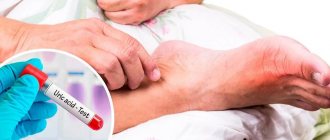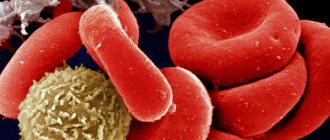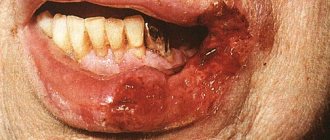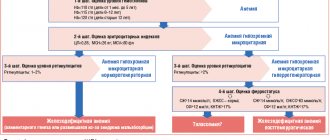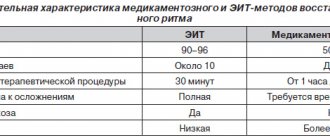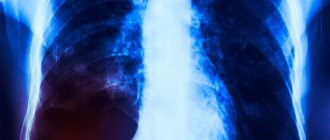When?
Inflammatory lesions of the bronchi and lungs are the most severe and cause significant intoxication of the body. Among inflammatory diseases of the bronchi, the greatest intoxication is characteristic of bronchiectasis, cystic fibrosis with symptoms of purulent bronchitis, exacerbations of COPD and bronchial asthma. Even more significant intoxication accompanies the course of infectious and inflammatory lesions of the lung tissue - pneumonia, abscess and gangrene of the lung, various forms, especially destructive ones, of pulmonary tuberculosis. Lung lesions are also common in rheumatic diseases and systemic vasculitis, in malignant tumors - lung cancer, atelectasis of pulmonary tissue, and pulmonary failure.
Symptoms of intoxication
Symptoms of intoxication are very extensive and have different expressions. Their manifestations are determined by the nature of the toxic substance, physical and chemical properties, affinity to certain organs, physiological systems, subcellular structures, body tissues, produced enzymes and existing receptors. The most common types of intoxication: food, alcohol, medicinal, environmental.
Depending on the degree of intoxication, different symptoms appear. Acute intoxication is characterized by a fairly high body temperature, severe pain in the muscles, joints and head. Often severe intoxication is accompanied by uncontrollable diarrhea and vomiting. When exposed to strong toxic substances, frequent loss of consciousness is possible.
Treatment:
The effectiveness of treatment measures depends on the accuracy of the diagnosis. The doctor can select an individual treatment program based on the results of laboratory tests, diagnosis and severity of the disease. The doctor may prescribe antipyretic, immunomodulatory, anti-inflammatory, antiviral drugs, as well as physical therapy, diet, infusion therapy, and vitamin therapy.
Contact the Multidisciplinary Pulmonology Center for help from competent specialists.
Intoxication
Sign up for a consultation by phone
Or fill out the form online
Make an appointment
Intoxication is poisoning of the body by toxic substances formed within itself or received from outside. Toxins received from outside (exogenous) include poisons of animal and plant origin (bacterial toxins, snake venom, etc.), industrial poisons (arsenic, lead, benzene, etc.), medications (when taken without medical supervision or with individual intolerance), chemical warfare agents. Toxic products formed in the body itself (endogenous) include substances that arise from severe diseases of the liver, kidneys, metabolic disorders, and the activity of the endocrine glands; microbial toxins (for infectious diseases), as well as tissue breakdown products (for malignant tumors, extensive burns, etc.).
In some cases, the cause of intoxication is not the substance itself that has entered the body, but the products of its transformation, which have a toxic effect. Toxic substances can enter the body through the respiratory tract, digestive tract, skin and mucous membranes, as well as through parenteral administration.
The manifestations and consequences of intoxication are extremely diverse. They depend on the nature of the toxic substance, its physicochemical properties, affinity for certain organs, physiological systems, tissues, subcellular structures, receptors, enzymes, etc. During exogenous intoxication, the dose (concentration) of the toxic substance, the routes of its introduction into the body and distribution in it, and the area of accumulation are of great importance. With repeated or continuous intoxication, cumulative effects (for example, poisoning with mercury, lead, digitalis) or addiction (intoxication with morphine, alcohol, arsenic) are often observed. The severity of intoxication is also largely determined by the individual reactivity of the body, in particular the functionality of countermeasures.
The general principles of treating intoxication, in addition to eliminating its original cause, come down to the specific neutralization of toxic substances (antidote therapy, antitoxic serums, etc.), as well as accelerating their elimination from the body. Hemodialysis and hemosorption methods are widely used. Symptomatic therapy is also carried out, aimed at restoring impaired functions. In case of autointoxication, it is necessary to treat the underlying disease in which toxins are formed. The outcomes of intoxication depend on its severity, the state of the body’s natural countermeasures, as well as the timeliness and effectiveness of therapeutic measures.
Benefits of the service
Convenient work schedule
We work until late in the evening to make it convenient for you to take care of your health after work
No queues
The patient registration system has been debugged over many years of work and works in such a way that you will be seen exactly at the chosen time
Cozy interior
It is important to us that patients feel comfortable within the walls of the clinic, and we have done everything to make you feel comfortable
Attention to the patient
At your service there are attentive staff who will answer any question and help you navigate
Diagnosis and treatment of tumor intoxication
At the first stage of diagnostic measures, the patient is examined and the symptoms of cancer intoxication and prognosis for life are assessed. Next, blood tests for biochemistry and additional instrumental studies are prescribed. An important role here is played by determining the main cause that led to the development of symptoms. If a pattern of clinical manifestations characteristic of tumor intoxication is observed, a comprehensive study is prescribed.
Basic diagnostic measures for cancer intoxication:
- general analysis of urine and blood;
- blood test for biochemistry;
- blood for tumor markers;
- scintigraphy of the bone apparatus;
- examination by a gynecologist (for women);
- chest x-ray;
- Ultrasound of the abdominal cavity and pelvic organs.
The research plan has an individual approach. To determine the severity of tumor intoxication in diagnosed cancer, a list of standard tests is used.
It is difficult to give an unambiguous definition of endogenous or cancer intoxication. This is due to the fact that intoxication in renal failure has a certain similarity with endotoxicosis. Many intermediate metabolites that have toxic effects have not yet been identified. A high level of oligopeptides is used as a nonspecific marker. Without a thorough examination and correction of cancer intoxication, adequate treatment cannot be carried out, and therefore there cannot be a complete cure.
Symptoms of cancer intoxication
Symptoms of tumor intoxication are characterized by gradual manifestation. An exception is the development of tumor lysis syndrome after chemotherapy. A rapid increase in symptoms requires an immediate response, and there is a risk of developing an acute stage of renal failure.
Typical symptoms of cancer intoxication:
- Weakness and fatigue
. They appear even with minor physical exertion. The patient spends most of his time in bed. - Increased low-grade fever
. Formation of a necrotic cavity and disintegration of most of the tumor conglomerate (may be accompanied by an increase in temperature up to 400C). - Change in skin color
. At first it becomes pale, then an earthy tint appears. Pallor can cause the development of anemia, as a result of disruption of the kidneys and endocrine system. - Cardiac dysfunction
. The heart rate changes and breathing quickens. - Damage to the nervous system
. Night sleep is disturbed, daytime sleepiness appears with signs of depression. Characterized by periodic attacks of migraine and dizziness. - Renal dysfunction
. Metabolic products block the kidney tubules, resulting in decreased urinary function. A high concentration of urea in the blood is manifested by itching and the formation of spots on the body that look like bruises.
Tumor intoxication is manifested by increased sweating and swelling. A constant feeling of nausea that does not go away even after vomiting. Liver function is impaired, which leads to a decrease in resistance to toxins and changes in blood viscosity.
What is intoxication?
Intoxication is a condition in which a disruption occurs in the functioning of internal organs under the influence of toxins that enter the body from the outside or are produced by the body itself in a number of diseases. The condition is usually accompanied by a complex of symptoms that quickly worsen the patient’s well-being. In severe cases, there is a danger to life, and then the victim needs hospitalization. Manifestations of intoxication appear in the period from 1 to 12 hours after the penetration of toxic substances into the body. In rare cases, symptoms may be atypical, making diagnosis difficult.
Causes
Several factors lead to poisoning. Intoxication occurs either due to the penetration of harmful substances into the body, or due to the release of their breakdown products. The main causes of intoxication are:
- drug poisoning;
- food poisoning;
- viral lesions of the body;
- bacterial damage to the body;
- disturbances in the functioning of the kidneys - in this case, waste substances are not completely eliminated from the body and begin to poison it from the inside;
- constipation - in the absence of bowel movements for a long time, feces decompose inside the body, poisoning it with decay products;
- a number of malignant neoplasms;
- purulent processes in the body.
Most often, intoxication occurs due to food poisoning or a viral infection.
Enterosgel and poisoning
The drug can be used for intoxication, both acute and chronic, as well as at all stages of treatment (in first aid, first aid, hospital, specialized, at the rehabilitation stage).
Unlike other drugs for similar purposes, the drug is approved for use in children from the first days of life, and is also indicated for pregnant and lactating women.
Enterosgel even removes bacterial endotoxins, promotes the regeneration of damaged mucosa and normalizes the intestinal microflora.
Thus, the functioning of the intestines and immune system is restored. At the first signs of possible poisoning, you can take Enterosgel in a standard dose. Then use the drug according to the instructions for 1-2 weeks.
A sufficient amount of water consumed and laxatives contribute to the rapid removal of toxic products from the body.
Liver protection medications, digestive enzymes, and anti-dysbacteriosis medications will also help relieve intoxication at home.
Causes of food poisoning
Poisoning can be due to various reasons. There are toxic infections and toxic poisonings.
Foodborne toxic infection occurs as a result of pathogenic microorganisms entering the gastrointestinal tract (GIT) with food. As a rule, the causative agent is pathogenic bacteria that multiply in products if they are improperly stored or get into ready-made food if it is not properly processed.
Toxic poisoning can be caused by various poisons - chemicals or natural toxins found in poisonous berries, mushrooms and many other foods.
The greatest danger from the point of view of food poisoning is represented by perishable foods: fish, meat, milk, salads, etc. Also, eggs, home-canned food, fruits and vegetables with a high content of nitrates, poisonous mushrooms and berries, raw beans, sprouted green potatoes and insufficiently washed raw vegetables and fruits can lead to food poisoning.
It is not recommended to consume products that have expired, are in swollen jars, are in damaged original packaging, or have an unusual appearance, smell, consistency and color.
